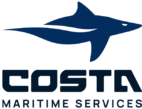Explore the pivotal role that Suape and Recife ports play in Brazil’s maritime logistics and economic development.
Strategic Location of Suape Port
Suape Port is strategically located in the state of Pernambuco in northeastern Brazil. Its location on the Atlantic coast makes it a key gateway for maritime trade in the region. Being situated near major shipping routes, Suape Port serves as an important hub for both domestic and international trade.
The port’s proximity to major industrial centers in Brazil, such as Recife and Sao Paulo, further enhances its strategic importance. It provides easy access to these economic hubs, facilitating the movement of goods and materials.
Additionally, Suape Port’s location offers logistical advantages for the transportation of goods to other parts of Brazil and South America. Its connectivity to road and rail networks allows for efficient distribution of cargo, contributing to the overall efficiency of maritime logistics in the country.
Infrastructure and Connectivity at Suape Port
Suape Port boasts state-of-the-art infrastructure and advanced facilities that support the smooth operation of maritime logistics. The port has deep-water berths capable of accommodating large vessels, including container ships, bulk carriers, and oil tankers.
Furthermore, Suape Port is equipped with modern cargo handling equipment, including cranes and forklifts, which ensure efficient loading and unloading of goods. The port also has ample storage facilities, including warehouses and container yards, to handle diverse types of cargo.
In terms of connectivity, Suape Port is well-connected to major transportation networks. It has direct access to the BR-101 highway, a major Brazilian road that runs along the country’s coast. Additionally, the port is served by a rail line that connects it to other parts of Brazil, facilitating the transportation of goods to inland destinations.
Economic Impact and Trade Relations
The presence of Suape Port has had a significant economic impact on the region and the country as a whole. The port has attracted numerous industries and businesses, leading to job creation and economic growth in the surrounding areas.
Suape Port has also played a crucial role in fostering trade relations with other countries. It serves as an important gateway for Brazil’s imports and exports, facilitating the exchange of goods with international partners. The port handles a wide range of commodities, including petroleum products, chemicals, grains, and manufactured goods.
Furthermore, Suape Port has established itself as a major center for the oil and gas industry. It is home to several oil refineries and petrochemical plants, contributing to Brazil’s energy sector and generating substantial revenue.
Sustainable Practices and Environmental Initiatives
Suape Port is committed to sustainable practices and environmental initiatives. The port prioritizes environmental protection and strives to minimize its ecological footprint.
To achieve this, Suape Port has implemented measures to reduce air and water pollution, such as using eco-friendly technologies and adopting stricter emission standards for vessels operating within its jurisdiction. The port also actively promotes waste management and recycling programs, ensuring responsible disposal of waste materials.
Furthermore, Suape Port supports initiatives for the conservation of marine life and the preservation of coastal ecosystems. It collaborates with research institutions and environmental organizations to monitor and protect the biodiversity in the surrounding waters.
By adopting sustainable practices and promoting environmental initiatives, Suape Port aims to balance economic development with ecological stewardship, ensuring a sustainable future for the region.
Future Expansion and Development Plans
Suape Port has ambitious plans for future expansion and development. The port authorities are investing in infrastructure projects to enhance its capacity and efficiency.
One of the key projects is the expansion of the port’s container terminal, which will increase its handling capacity and accommodate larger container vessels. The expansion will further strengthen Suape Port’s position as a major player in Brazil’s maritime logistics sector.
In addition to infrastructure development, Suape Port is also focusing on improving its digital capabilities. The port aims to leverage advanced technologies, such as automation and digitalization, to streamline its operations and provide better services to its customers.
Furthermore, Suape Port is exploring opportunities for diversification and the development of new industries. The port aims to attract investments in sectors such as renewable energy, logistics services, and shipbuilding, contributing to the overall economic development of the region.
